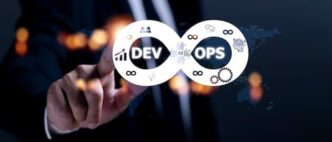Introduction
Think of DevOps as a bustling city rather than a collection of roads and buildings. The skyscrapers, highways, and bridges represent the tools—Jenkins, Kubernetes, Docker, and countless others. Yet, what truly makes the city thrive is not the infrastructure itself but the culture of collaboration, adaptability, and foresight among its citizens. This mindset is what keeps the town alive, evolving, and resilient. Similarly, in DevOps, tools matter, but the mindset driving how teams use them is what transforms sound systems into extraordinary ones.
The Compass, Not the Map
When sailors venture into uncharted waters, maps can quickly become outdated, but a compass will always guide them north. Tools in DevOps are like maps—helpful, detailed, but limited by context. The mindset, however, is the compass that steers teams through uncertainty. A team with the right attitude can adapt when a tool becomes obsolete or when a new technology disrupts the landscape. This is why learners enrolling in a DevOps Course in Chennai are encouraged not just to master tools but to cultivate adaptability, resilience, and critical thinking—the qualities that outlast any tool’s lifecycle.
Collaboration Over Configuration
Imagine two orchestras performing the same symphony. One is equipped with state-of-the-art instruments but is plagued by musicians who refuse to listen to one another. The other has modest instruments, but every member communicates fluidly, adjusts their tempo, and supports the collective rhythm. The second orchestra will consistently deliver a richer performance. In DevOps, collaboration between developers, operations, and business stakeholders matters more than the sophistication of a toolchain. Learners in a DevOps Course in Chennai quickly realise that tools may enhance performance, but mindset is what orchestrates harmony.
Learning to Embrace Failure
Tools are built to prevent and resolve failures, but no stack is immune to collapse. A mindset that embraces failure as a teacher, not an enemy, is what differentiates high-performing teams. Consider Netflix’s “Chaos Monkey,” which deliberately breaks systems in production to test resilience. Without the right mindset, such an approach would feel reckless; with it, it becomes a learning strategy. Teams that treat failure as an opportunity for growth ultimately build systems that recover faster and stronger, demonstrating that mindset is the foundation upon which robust DevOps practices are built.
Continuous Evolution, Not Just Continuous Integration
It’s tempting to equate DevOps with pipelines, deployments, and integrations. But pipelines alone do not guarantee innovation. True transformation lies in the mindset of continuous evolution. This is about asking: How can we deliver better, faster, and more securely tomorrow than we did today? Tools automate tasks, but they cannot ask questions or spark innovation. That spark must come from people who approach DevOps as a journey rather than a destination. When teams adopt this perspective, the choice of tools becomes secondary to the culture of relentless improvement.
Tools as Amplifiers, Not Leaders
Tools are amplifiers—they magnify the intent and discipline of the people using them. A poorly managed mindset will turn even the best tool into a liability, while a strong mindset can extract immense value from even basic solutions. Consider an organisation rolling out Kubernetes clusters without fostering collaboration or monitoring discipline. The outcome will likely be chaos, despite the sophistication of the tool. The key lesson is simple: tools amplify what already exists, and without the right mindset, they amplify dysfunction.
Conclusion
DevOps is often portrayed as a toolbox filled with automation, orchestration, and monitoring platforms. Yet, at its core, DevOps is less about the tools and more about the people wielding them. A mindset grounded in collaboration, adaptability, and resilience is what gives life to the tools, not the other way around. For professionals and learners alike, the takeaway is clear: cultivate the mindset first, and the tools will naturally serve your vision. In the long run, it is the compass of mindset, not the ever-changing map of tools, that keeps the DevOps journey moving forward.













